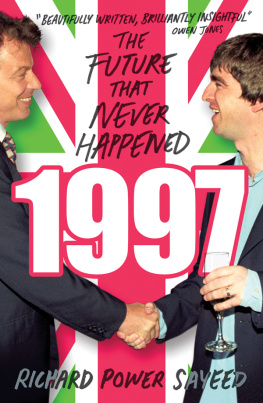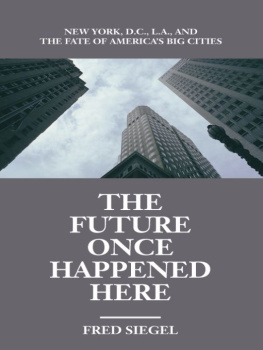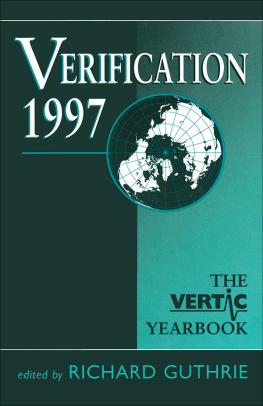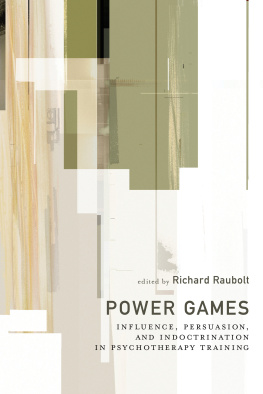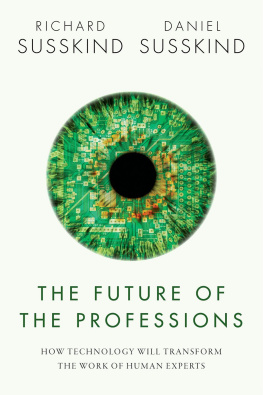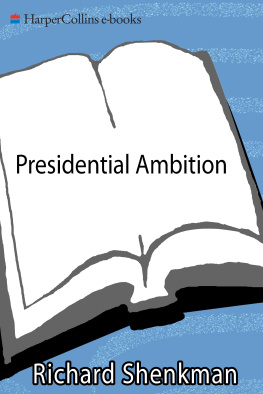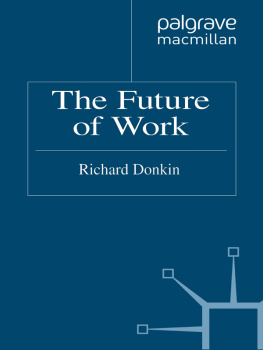Richard Power Sayeed - 1997: The Future that Never Happened
Here you can read online Richard Power Sayeed - 1997: The Future that Never Happened full text of the book (entire story) in english for free. Download pdf and epub, get meaning, cover and reviews about this ebook. year: 2017, publisher: National Book Network International, genre: Politics. Description of the work, (preface) as well as reviews are available. Best literature library LitArk.com created for fans of good reading and offers a wide selection of genres:
Romance novel
Science fiction
Adventure
Detective
Science
History
Home and family
Prose
Art
Politics
Computer
Non-fiction
Religion
Business
Children
Humor
Choose a favorite category and find really read worthwhile books. Enjoy immersion in the world of imagination, feel the emotions of the characters or learn something new for yourself, make an fascinating discovery.
- Book:1997: The Future that Never Happened
- Author:
- Publisher:National Book Network International
- Genre:
- Year:2017
- Rating:5 / 5
- Favourites:Add to favourites
- Your mark:
- 100
- 1
- 2
- 3
- 4
- 5
1997: The Future that Never Happened: summary, description and annotation
We offer to read an annotation, description, summary or preface (depends on what the author of the book "1997: The Future that Never Happened" wrote himself). If you haven't found the necessary information about the book — write in the comments, we will try to find it.
1997: The Future that Never Happened — read online for free the complete book (whole text) full work
Below is the text of the book, divided by pages. System saving the place of the last page read, allows you to conveniently read the book "1997: The Future that Never Happened" online for free, without having to search again every time where you left off. Put a bookmark, and you can go to the page where you finished reading at any time.
Font size:
Interval:
Bookmark:

A beautifully written, brilliantly insightful account of New Labours Britain and fundamental to our understanding of how this country ended up in this mess.
O WEN J ONES
A dazzling, funny, and impressively detailed analysis of one of the most important years in modern British history. Both nostalgic and deeply critical, this book casts 1997 in an entirely new light and is vital for anybody hoping to understand how a once-triumphant and optimistic nation became so polarised, and its politics so volatile.
E LLIE M AE OH AGAN
A vital book that combines great storytelling with fresh insights, and says as much about the present as the recent past.
A LWYN W. T URNER, AUTHOR OF A C LASSLESS S OCIETY: B RITAIN IN THE 1990 S
Richard Power Sayeed has vividly reprised the year 1997, when radical currents flowed into the mainstream, and the authorities welcomed moderate reforms with satisfied contentment. Such promise but what did it deliver?
A NDY M C S MITH, AUTHOR OF N O S UCH T HING AS S OCIETY: A H ISTORY OF B RITAIN IN THE 1980S
ABOUT THE AUTHOR
Richard Power Sayeed is a writer and documentary maker based in London. This is his first book, and he has somehow managed to finish it without losing his love for the minutiae of nineties Britain.
1997
THE FUTURE
THAT NEVER
HAPPENED
Richard Power Sayeed

1997: The Future that Never Happened was first published in 2017 by Zed Books Ltd, The Foundry, 17 Oval Way, London SE11 5RR, UK
www.zedbooks.net
Copyright Richard Power Sayeed 2017
The rights of Richard Power Sayeed to be identified as the author of this work have been asserted by him in accordance with the Copyright, Designs and Patents Act, 1988
Typeset in Haarlemmer by seagulls.net
Cover design: Alice Marwick
Cover photo Rebecca Naden/PA Images
All rights reserved. No part of this publication may be reproduced, stored in a retrieval system or transmitted in any form or by any means, electronic, mechanical, photocopying or otherwise, without the prior permission of Zed Books Ltd.
A catalogue record for this book is available from the British Library
ISBN 978-1-78699-198-0 hb
ISBN 978-1-78699-199-7 pb
ISBN 978-1-78699-200-0 pdf
ISBN 978-1-78699-201-7 epub
ISBN 978-1-78699-202-4 mobi
CONTENTS
Thank you to Ed, for being critic, best friend and brother combined; to Kim, for her excellent eye, for shaping all this into something publishable and for much more besides; and to eljka, because she told me, four years ago, that I should actually write this thing.
I am also deeply grateful for the assistance of the late Doreen Massey, as well as that of Anna, Annie, Chris, Daniel, Dmitriy, Ellie Mae, Florence, Huw, Jo, Joe, Jonathan, Jordan, Julien, Julika, Lars, Leo, Lewis, Nic, Pete, Rosa, Satiyesh, Serena, Tisha, Tom H and the staff of the British Library the librarians, certainly, but also the catering subcontractors who gave me free cups of tea.
Noel Gallagher was celebrating Labours election victory with his girlfriend, Meg Matthews, at their home in the fashionable north London suburb of Primrose Hill. He would recall how, that night in May 1997, It was all champagne, brandy and cigars round our house Meg and me got pissed and went out into the garden and played Revolution dead loud.
The Beatles song that they chose had been written in the midst of worldwide protests and strikes, the events of 1968. When many of John Lennons generation had been sacrificing their safety and reputations in the hope of building a better world, this icon of 1960s pop counterculture had responded by singing you can count me out. His lyrics had decried revolutionary destruction and hate, but also dismissed changing the institution or, indeed, the constitution. His proposal was different and more focused on the self: You better free your mind instead. As the Beatles track rang out from Matthews and Gallaghers hi fi, Lennons words mocking the utopian dreams of the sixty-eighters, Tony Blair was being driven from his parliamentary constituency in County Durham to London, where he would begin implementing a new kind of Labour politics, one that prized individual aspiration over class struggle.
On the other side of town, three intellectual luminaries of the British left were sitting on the sofa watching Blairs party triumph. Doreen Massey, Stuart Hall and Martin Jacques had spent much of the previous two decades describing and analysing the immense human cost of Thatcherism, Majorism, the new right neoliberalism, they called it. They were, respectively, a feminist geographer brought up on a Manchester council estate, a cultural theorist who had come to the UK from Jamaica in 1951, and a senior journalist with a rather more comfortable background. They reflected the diverse, often fragmented, aims of the far left, which had long seemed powerless to halt the violent globalization of markets, the rich getting richer, and those with power acquiring even more of it.
Tonight, though, their enemies were being destroyed live on television. Portillo, Michael Denzil Xavier, read the returning officer. A few of those who had assembled at Picketts Lock Leisure Centre, Enfield, laughed at the name of the right-wing defence secretary. Standing on stage behind the officer and in front of a high curtain of dramatic scarlet, he forced a smile. Conservative Party. Nineteen thousand, one hundred and thirty-seven. There was polite applause. The result would be tight, but the prospect of Labour winning Enfield, stereotyped as a bastion of working-class Thatcherism, was just too extraordinary. The result for the Christian Democrat candidate was read out. He had received 289 votes, and a solitary supporter at the back of the hall gave a huge cheer. Now the next candidate was up. Twigg, Steven. Labour Party Standing beside Portillo, a young man with middle-parted hair and a red rose in his lapel looked nervous. Twenty thousand, fi The shouts and screams of celebration made the rest inaudible. It really was a landslide.
Massey, Hall and Jacques would have watched that night go by with mixed feelings. The new left to which they belonged was a loose coalition of feminists, anti-racists, LGBT activists, environmentalists, anarchists and anti-capitalists that had been formed partly by the Paris events and by the anti-Vietnam War movement that is, by the revolutionary activism that Lennons song had mocked. Members of this grouping argued that the class struggle embodied by the trade union movement should be only one component of a wider revolution for which they and their comrades should fight.
They had spent the Thatcher years building a power base in local government, while within Labour itself, they had aggressively fought the partys free market wing, of which Tony Blair and his right-hand man Gordon Brown were now the leading lights. However, Blairs New Labour used the new lefts insight that inequality and unfreedom were not determined only by class and wealth to bolster their own programme, one that aggressively downplayed the importance of economic inequality.
The following chapters describe a series of similar acts of appropriation, all of which happened in 1997, and through which those in power took advantage of subversion. These moments were junctures within histories that lasted much more than 365 days, but this book will show how New Labours election triumph both reinforced the symbolism of the events of that year and increased their impact in concrete ways. New Labour acted as a fulcrum of progressive optimism, feeding into amorphous hope and drawing political capital from it. They gave practical assistance and ideological shape to the events taking place around them, from the mourning of Princess Diana to Noel Gallaghers political pronouncements. In turn, a liberal mass culture gave the party even more political space to expand the welfare state, to launch an enormously high-profile inquiry into police racism and to promote a multicultural image of the UK.
Next pageFont size:
Interval:
Bookmark:
Similar books «1997: The Future that Never Happened»
Look at similar books to 1997: The Future that Never Happened. We have selected literature similar in name and meaning in the hope of providing readers with more options to find new, interesting, not yet read works.
Discussion, reviews of the book 1997: The Future that Never Happened and just readers' own opinions. Leave your comments, write what you think about the work, its meaning or the main characters. Specify what exactly you liked and what you didn't like, and why you think so.

